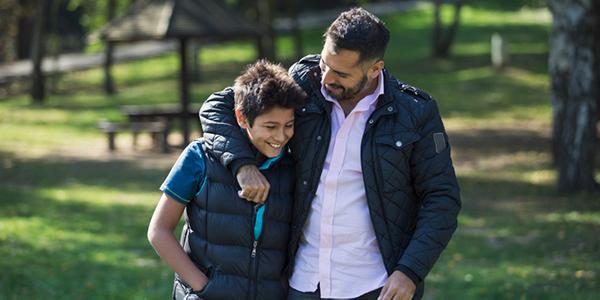
Almost everyone is in tune with at least a handful of iconic TV shows. We love them, they’re compelling, nostalgic, and feel just so. darn. relatable. We watch them for the relationships… the best friend duos, the romantic failures, and the family dynamics…every interaction is riddled with drama. It’s what makes these shows fun to watch.
And that’s ok! As much as we don’t want to glamourize toxic relationships, TV shows are meant to be dramatic. But let’s take a moment to reflect. I invite you to help in shifting the narrative by having teens learn about healthy relationships from us, instead of getting all their cues from Modern Family or the never-ending emotional rollercoaster that is Grey’s Anatomy. I promise, there are surprising amounts of benefits to intentionally talking to teens about the relationships in their lives.
Social connections are a vital part of teens’ lives - this could be messaging on Snap Chat (while somehow managing to watch Netflix and listen to music at the same time), playing online video games, or just hanging out. When youth are part of stable, supportive relationships it results in better physical health, fosters self-confidence and promotes the development of conflict resolution and communication skills. This means they will have better academic outcomes, more satisfying interpersonal relationships and develop the resilience to reach their full potential. No pressure but… open communication with the caring adults in their lives is one of the most important protective factors for youth’s well-being. “Protective factor” is public health speak for something that reduces potential for taking part in negative behaviour (like substance misuse or risky sexual behaviour).
My daughter was asking me about my high school experience the other night - if there was anyone I really didn’t get along with and how I managed it. Although I was never involved in much conflict, and I’m eternally grateful that social media wasn’t a thing yet; I told her one of my biggest regrets was not engaging with my peer group and focusing on romantic relationships instead. If you have a teen in your life, you know that adolescence is a tumultuous time! But, it’s also a prime opportunity to teach youth how to engage in healthy relationships with family, friends and partners. These skills will result in more satisfying day-to-day relationships, and lasting benefits to their mental and physical health.
When we look back as adults, there are many relationship lessons that would have made life as a teenager easier if we had talked about them at home or in school. Knowing how to make an apology, survive a devastating break-up (or break-up with someone respectfully), how to stay safe online and understanding what consent really means are all helpful skills that contribute to more satisfying and stable connections. This doesn’t mean parents/caregivers have to become relationship experts – just be willing to listen and ask (gentle) probing questions if the opportunity presents itself. And, if it doesn’t – try putting yourself out there and start an awkward convo!
Adolescence can be a stressful time in the real and virtual worlds. When youth have unhealthy social conflict or experience trauma or violence, it can have serious developmental consequences and negative mental health impacts. Social media and other online platforms can have a damaging impact on body image and perpetuate gender, racial and violent stereotypes. Unhealthy relationships that feature a lot of jealousy, volatility, and manipulation can have negative consequences for both parties. Learning how to communicate assertively and advocate for themselves and their peers will impart teens with the knowledge and confidence to engage in healthy relationships and contribute to positive mental health. If we teach teens early on how to identify healthy and unhealthy relationships, resolve conflicts and set boundaries, we’re setting them up for lifelong success in all types of relationships.
For more information about the Youth Violence Prevention Project, an initiative to deliver the Fourth R program in Thunder Bay and District schools, visit tbdhu.com/yvpp. The Fourth R aims to impart Gr.7-9 students with the knowledge, skills and attitudes to engage in lifelong healthy relationships.
Here’s a list of pathways to help for you or your teen relating to some of these tricky topics:
